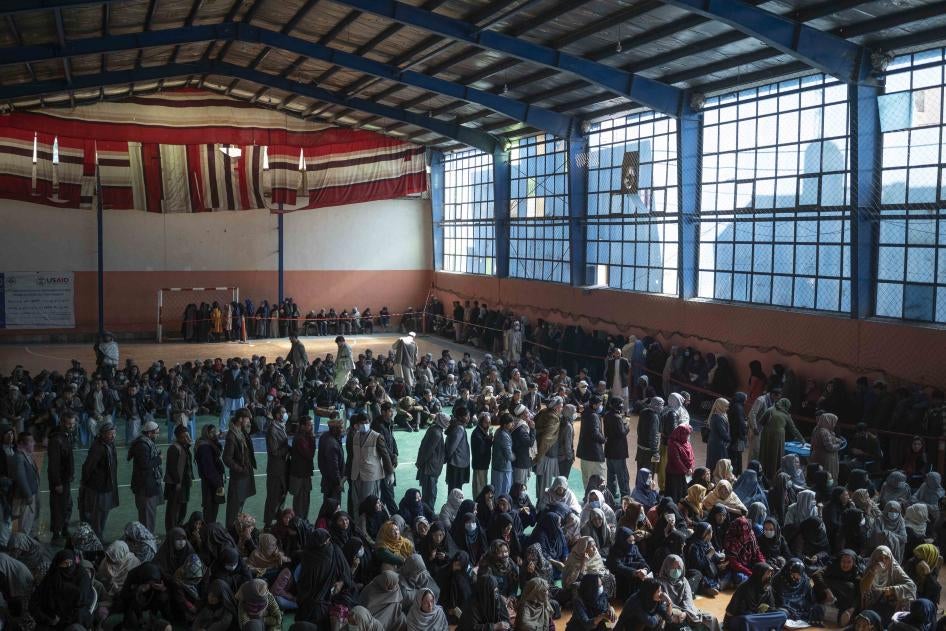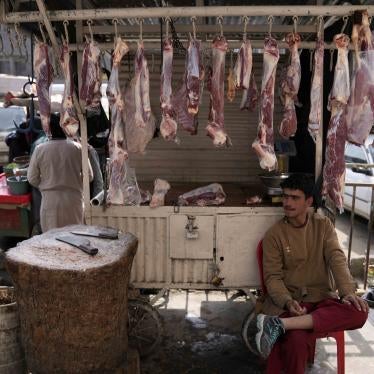(Washington, DC) – Afghanistan’s massive humanitarian crisis has its roots in outside restrictions on the country’s banking sector and international humanitarian and development funds, Human Rights Watch said today. Human Rights Watch issued a question-and-answer document that outlines the crisis and what steps the United States and other governments should take to address it.
Acute malnutrition is spiking across Afghanistan, and 95 percent of households have been experiencing food insecurity. Afghan children are starving to death nearly every day, according to humanitarian organizations.
“Afghanistan’s humanitarian crisis is in essence an economic crisis,” said John Sifton, Asia advocacy director at Human Rights Watch. “Afghans see food in the market but lack the cash to buy it. Health workers are ready to save lives but have no salaries or supplies. Billions have been pledged for aid but remain unspent because banks can’t transfer or access funds.”
US government actions since the Taliban takeover in August 2021, including suspending recognition of Afghanistan’s Central Bank, have cut off the country’s economy from the world and severely curtailed the payment of vital assistance and salaries of millions of teachers, health workers, and other essential workers. These measures, which US officials said were taken to sever the Taliban’s access to foreign assets, are now directly impairing Afghans’ basic human rights to a livelihood, food, health care, and life itself, Human Rights Watch said.
Most Afghan households have lost some or all of their livelihoods over the past six months. The economic crisis has disproportionately harmed women and girls, who face greater obstacles to getting food and basic resources, including because of a Taliban ban on women working in most jobs.
Since the Taliban takeover, authorities have imposed several strict restrictions on women and girls that violate their rights to education, work, health care, freedom of movement and speech, and suppressed the Afghan media in Kabul and throughout the country. Taliban authorities have also arbitrarily detained and at times executed people deemed opponents.
US officials have acknowledged that an agreement could be reached to recognize Afghan Central Bank leadership, independent of the Taliban and monitored by outside auditors, to allow the bank to process legitimate commercial and humanitarian transactions again.
In recent weeks, the US and World Bank have authorized humanitarian efforts and unlocked billions of dollars in assistance that could be used to help stabilize the country; the US and United Nations have technically authorized Afghan banks to engage again in international commerce, Human Rights Watch said. But underlying restrictions on Afghanistan’s Central Bank remain, making it difficult or impossible for private banks to process large transactions or withdrawals and impairing the underlying functionality of the country’s economy.
“Economic activity needs to be restored in Afghanistan so that a dire situation doesn’t become tragically worse,” Sifton said. “The US and Taliban should reach agreements on solutions to avert further starvation. Pledges of aid and authorization for humanitarian work will not be sufficient to feed the entire nation.”








